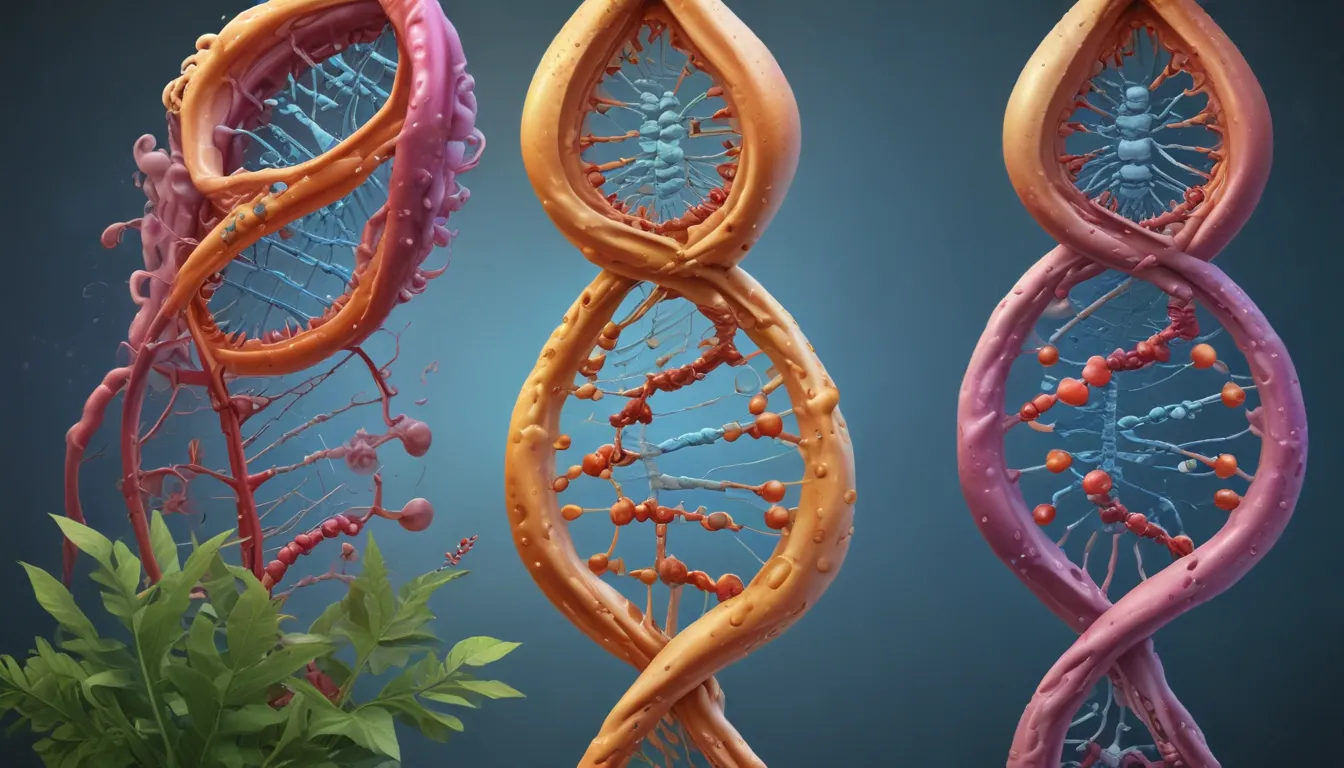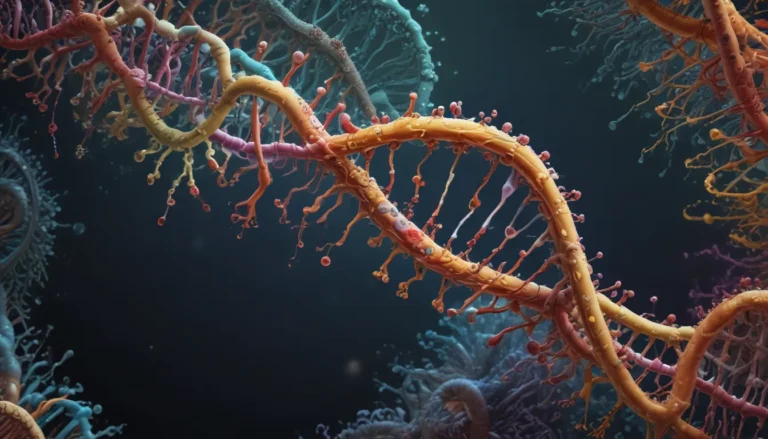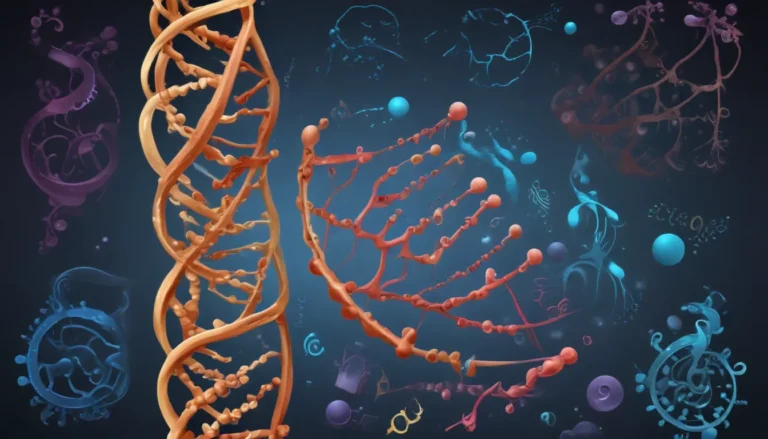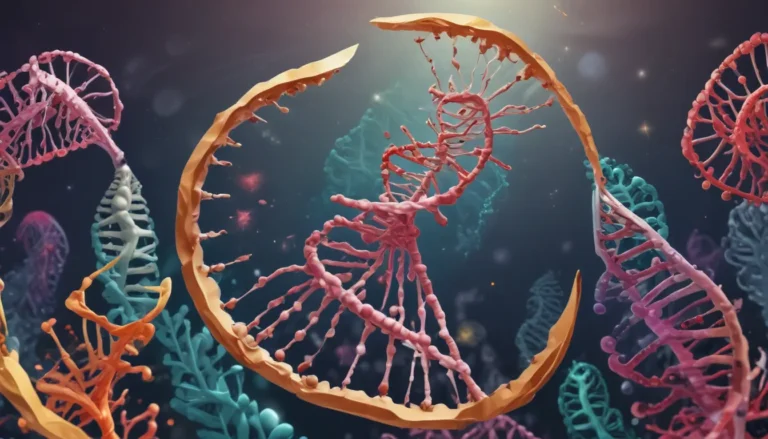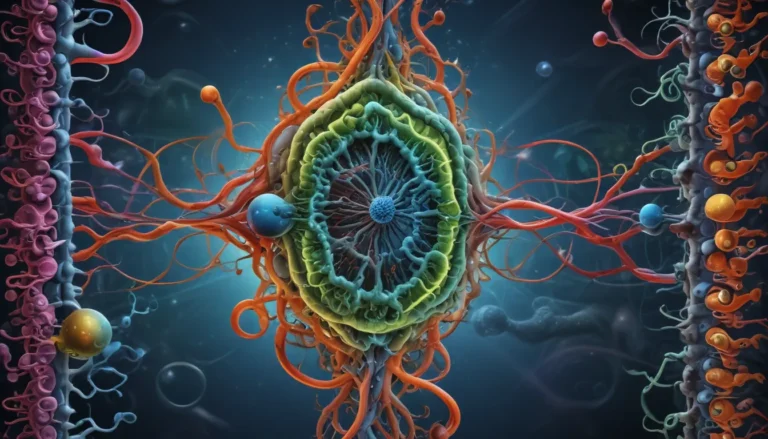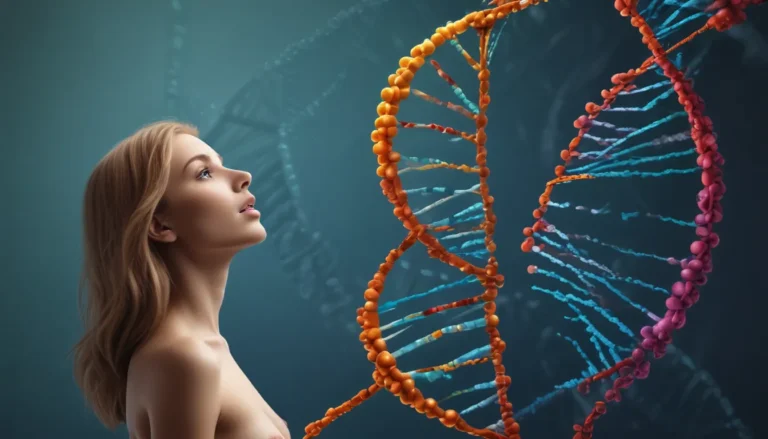A Note About Images: The images used in our articles are for illustration purposes only and may not exactly match the content. They are meant to engage readers, but the text should be relied upon for accurate information.
Epigenetics, a captivating field of study, is revolutionizing our understanding of genes and their impact on health and well-being. Beyond the traditional focus on DNA sequences, epigenetics explores the mechanisms that control gene expression without altering the genetic code. In this article, we delve into the world of epigenetics and unveil intriguing facts that showcase the complexity and versatility of our genetic makeup. From the role of environmental factors to the potential implications in disease prevention and treatment, prepare to embark on an incredible journey through the world of epigenetics.
Understanding Epigenetics: The Basics
Epigenetics delves into how genes are turned on and off, determining which ones are expressed and which ones are silenced. These changes in gene activity are not caused by alterations in the DNA sequence itself. This emerging field has transformed our understanding of how genes and the environment interact to shape our health and development.
Epigenetics and Inheritance: Shaping Future Generations
Epigenetic changes can be inherited from one generation to the next, influencing the genes of future offspring. Experiences in one’s lifetime can impact the genes of generations to come, passing on certain traits and characteristics not encoded in the DNA sequence.
Environmental Influences and Epigenetics: A Powerful Connection
The environment plays a significant role in shaping epigenetic modifications. Factors like diet, stress, pollutants, and social interactions can influence these modifications. For instance, a mother’s diet during pregnancy can lead to epigenetic changes in the offspring, affecting their susceptibility to diseases later in life.
Epigenetics and Disease: Unraveling the Connection
Epigenetic alterations have been linked to a wide range of diseases, including cancer, neurological disorders, and cardiovascular conditions. Understanding the role of epigenetics in these diseases opens up new possibilities for targeted therapies and personalized medicine.
The Impact of Epigenetics in Aging: A Key Player
Epigenetic changes play a crucial role in the aging process. As we age, our DNA accumulates epigenetic marks that can impact gene expression, contributing to age-related diseases and overall cellular decline.
Epigenetics and Behavior: Influencing Mental Health
Epigenetic modifications can influence behavior and mental health. Early life experiences and social interactions can shape epigenetic marks, impacting an individual’s susceptibility to anxiety, depression, and other behavioral traits.
Epigenetics and Identical Twins: Unraveling Differences
Despite sharing identical DNA, epigenetic differences can arise between identical twins due to various environmental factors and experiences throughout their lives. This phenomenon explains why identical twins can exhibit different traits and susceptibilities to diseases.
Epigenetics and Personalized Medicine: Tailoring Treatments
Epigenetics has the potential to revolutionize personalized medicine by providing insights into an individual’s unique genetic makeup and its interaction with the environment. Understanding one’s epigenetic profile can aid in developing targeted therapies customized to specific needs.
Epigenetics and Evolution: Contributing to Genetic Variation
Epigenetic changes can play a role in evolution by providing additional heritable variation. These changes can lead to new traits and adaptations that help species survive and thrive in changing environments.
Epigenetics and Nutrition: The Influence of Diet
Nutrition significantly impacts epigenetic modifications, with certain nutrients like folate and B vitamins playing a vital role in DNA methylation, a common epigenetic mechanism. A balanced diet can influence the epigenetic landscape and promote optimal gene expression.
Epigenetics and Environmental Epigenomics: Exploring Exposures
Environmental epigenomics examines how environmental exposures, such as toxins and pollutants, influence epigenetic modifications. This research aims to uncover how environmental factors impact gene expression and potentially lead to diseases.
The Future of Epigenetics Research: Promising Discoveries Ahead
As the field of epigenetics progresses, researchers uncover new insights into the intricate relationship between genes and the environment. Further research in epigenetics offers promising potential for breakthroughs in personalized medicine, disease prevention, and human development understanding.
Conclusion: Embracing the Power of Epigenetics
Epigenetics, a rapidly evolving field, is reshaping our understanding of genetics and human health. Through intricate molecular mechanisms, epigenetics modifies gene expression without altering the DNA sequence, offering profound implications for disease development and personalized therapies. As we explore the fascinating world of epigenetics, we discover how our environment, lifestyle, and stress levels can influence our genetic makeup and impact future generations.
FAQs: Answering Your Questions
- What is epigenetics?
-
Epigenetics studies heritable changes in gene expression without altering the DNA sequence. Various environmental factors and lifestyle choices can influence these changes.
-
How does epigenetics influence our health?
-
Epigenetic modifications regulate gene expression, impacting health and disease susceptibility. Understanding these mechanisms helps in developing targeted treatments and preventive strategies.
-
Can epigenetic modifications be inherited?
-
Yes, epigenetic changes can be passed on from one generation to the next, affecting health across generations.
-
Can epigenetic changes be reversed?
-
Epigenetic modifications are reversible, with lifestyle interventions like exercise, stress reduction, and diet potentially reversing their effects.
-
How is epigenetics utilized in medicine?
- Epigenetics aids in cancer research, personalized medicine, and drug discovery, identifying biomarkers for disease diagnosis, prognosis, and treatment response.
Epigenetics continues to captivate researchers, unveiling how our lives are shaped beyond our genetic code. Exploring the realm of epigenetic inheritance opens doors to understanding how traits transcend generations, guided by the pioneering work of scientists like Rudolf Jaenisch. As we embrace the world of epigenetic modifications, we pave the way for transformative discoveries in medicine, promising a brighter future for health and well-being. Trust in the power of epigenetics as we unlock the secrets of genetic regulation, shaping a new era of personalized medicine and preventive strategies.
